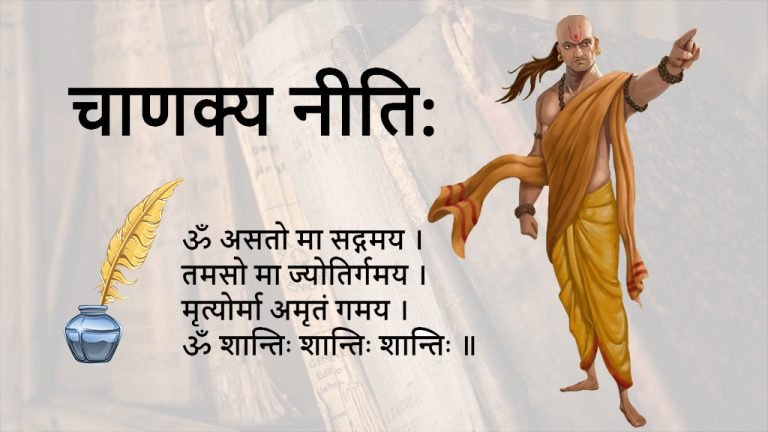- To have ability for eating when dishes are ready at hand, to be robust and virile in the company of one’s religiously wedded wife, and to have a mind for making charity when one is prosperous are the fruits of no ordinary austerities. These only come to them, who have great fortune.
- He whose son is obedient to him, whose wife’s conduct is in accordance with his wishes, and who is content with his riches, has his heaven here on earth.
- They alone are sons who are devoted to their father. He is a father who supports his sons. He is a friend in whom we can confide, and she only is a wife in whose company the husband feels content and peaceful.
- Avoid him who talks sweetly before you but tries to ruin you behind your back, for he is like a pitcher of poison with milk on top.
- Do not put your trust in a bad companion nor even trust an ordinary friend, for if he should get angry with you, he may bring all your secrets to light.
- Do not reveal what you have thought upon doing, but by wise counsel keep it secret being determined to carry it into execution.
- Foolishness is indeed painful, and verily so is youth, but more painful by far than either is being obliged in another person’s house.
- There does not exist a ruby in every mountain, nor a pearl in the head of every elephant; neither are the sadhus to be found everywhere, nor sandal trees in every forest.
- Wise men should always bring up their sons in various moral ways, for children who have knowledge of niti-sastra and are well-behaved become a glory to their family.
- Those parents who do not educate their sons are their enemies; for as is a crane among swans, so are ignorant so are ignorant sons in a public assembly.
- Many a bad habit is developed through overindulgence, and many a good one by chastisement, therefore beat your son as well as your pupil; never indulge them.
- Let not a single day pass without your learning a verse, half a verse, or a fourth of it, or even one letter of it; nor without attending to charity,study and other pious activity.
- Separation from the wife, disgrace from one’s own people, an enemy saved in battle, service to a wicked king, poverty, and a mismanaged assembly: these six kinds of evils, if afflicting a person, burn him even without fire.
- Trees on a river bank, a woman in another man’s house, and kings without counsellors go without doubt to swift destruction.
- A brahmin’s strength is in his learning, a king’s strength is in his army, a vaishya’s strength is in his wealth and a shudra’s strength is in his attitude of service.
- The prostitute has to forsake a man who has no money, People sacrifice a king that cannot defend his state, the birds forsake the tree that bears no fruit, and the guests in a house after they have finished their meals.
- Brahmanas quit their patrons after receiving alms from them, scholars leave their teachers after receiving education from them, and animals desert a forest that has been burnt down.
- He who befriends a man whose conduct is vicious, whose vision impure, and who is notoriously crooked, is rapidly ruined.
- Friendship between equals flourishes, service under a king is respectable, it is good to be business-minded in public dealings, and a handsome lady is safe in her own home.
Chanakya is considered the pioneer of the field of Political science and economics in India, and his work is thought of as an important precursor to classical economics. Chanakya the Great Economist was an ancient Indian polymath who was active as a teacher, author, strategist, philosopher, economist, jurist and royal advisor. He is traditionally identified as Kauṭilya or Vishnugupta, who authored the ancient Indian political treatise, the Arthashastra, a text dated to roughly between the fourth century BCE and the third century CE.TheArthashastracontinued to exert considerable influence after the reign of Ashoka but then disappeared and was considered lost until it was discovered in 1905 CE by the Sanskrit scholar Rudrapatna Shamasastry (l. 1868-1944 CE). Rudrapatna Shamasastry published the work in 1909 CE and then translated it into English and published that version in 1915 CE which brought it greater attention.
Chanakya’s Arthashastra which is very famous by the name ofNiti Shastra, describes 17 chapters and 342 sutraswritten in it. For detailsvisit our site https://digitalksp.com/category/education/.






